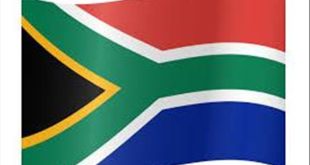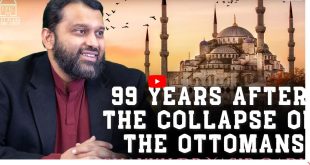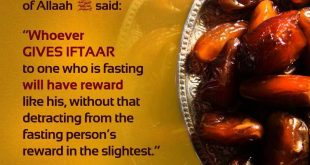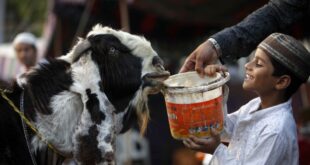 Editor’s note: In the first four parts of this Series, the author has explored some significant features of the formation of Islamic identities in Africa.. Here, he draws important conclusions from his in-depth study.
Editor’s note: In the first four parts of this Series, the author has explored some significant features of the formation of Islamic identities in Africa.. Here, he draws important conclusions from his in-depth study.
The names of tribes, like the Manding/Jula, Fulbe, Hausa, Wolof .. Tribes delving deep into Islam have become synonymous to Islam
The real link between the Torodbe and the point under discussion, that is the influence of Islam in the formation of individual and collective identities, lies in the distinction of the Torodbe that turned them into a real semi-ethnicity in West African lands.
For, it has become familiar that some people affiliate with Torodbe considering it an ethnicity for them, while in fact it is not. Rather, it is – in the words of a researcher – a “Fulbe-like” ethnicity.
Concluding Remarks
Perhaps what is presented in the preceding passages of cut-short shots, leads to a clear view about the dynamic impact of Islam in the formation of identities of Muslim people in Africa, and the constant development of it the deeper those people delve into Islamic religion.
Such delving has driven some tribes, like the Manding, the Fulbe and the Hausa, to identify with Islam, leading to the interlocking of the threads forming their identities with the Islamic texture to the extent that made it difficult to separate between what Islamic and what is non-Islam, from among the identity constituents of such tribes.
This is, at least, in the way such Muslim tribes view themselves as Muslims in Toto, and in the way others view them through the same perspective too.
It is well-known that view of the “other” is the other side of the coin in determining identity.
This opinion is manifested, for instance, through the researchers’ discussion of the Hausa ethnicity.
The moot point here is whether the Hausa is considered an racial ethnicity or not! In this regard, researcher Badin denied the existence of a Hausa ethnicity in the scientific sense of term on the plea that what is defined by such term has become unrealistic.
For Hausa, since a distant time, has become more of a race and a lineage. So, through desire, an individual can speak the Hausa language, embrace Islam and then claim to be Hausa.
 A similar claim is stated by historian Hiskett, who affirmed that different ethnicities of which Hausa consists share nothing other than “language and belonging to Islam”.
A similar claim is stated by historian Hiskett, who affirmed that different ethnicities of which Hausa consists share nothing other than “language and belonging to Islam”.
Here, it is interesting to note that the names of tribes, like the Manding/Jula, the Hausa, the Wolof, etc.; the tribes that have delved deep into Islam, have becomes synonymous with Islam.
So, if some individuals from among the Gebin or Senoufo tribes (Northern Ivory Coast), for instance, embrace Islam, they are described as having “become Jula” (a kera jula ye). And in Nigeria, the new Muslims from among the Yoruba and the Ibo are described as having become Hausa (ya zama bahaushe).
It is also well-known that such phenomenon is general all over the domain of Islam in Africa and in Asia. For, until the middle of the preceding century, Islam was called “hui-jiao” in China, meaning the religion of the “Huiji” nationality, and whoever embraced Islam would be called “Huijiao tu”, meaning a person from the Huiji, regardless of his/her origin.
Also, in colloquial Melayu, a person who entered Islam would be called “masuk Melayu”, meaning that he has joined the Melayu.
Whatever reservations against such phenomenon may be, what draws our attention is its indication to the strong Islamic influence on the identity of those to whom Islam is reduced and with whose name it has become synonymous.
Here, in particular, the allegations of some researchers who claim that Islamic identity in Africa is determined in opposition to three parallel dimensions, namely non-Muslim Africa, the Arab world and Western civilization, meaning that the identity of the African Muslim is identified through its difference from what is mentioned of these three classifications.
Such is a false and invalid equation due to the presence of the “Arab world” marker in it. For, at the very least, it is not possible to investigate an Islamic identity in Africa apart from the Arab world.
In other words, the identity of the African Muslim cannot be determined unless it is joined with the Arab world, due to the known organic relation between these variables.
Out of our care for the foregoing to have its share in realism, we should ascertained necessity of investing this organic relation between Islam and the identities of African Muslims towards consolidating the interconnections between them and the Arabs, on one hand, and between Muslim peoples.
Such investment should be employed and utilized in promoting common issues, mobilizing powers, and extracting rights that are no longer bestowed except in the presence of major blocs and mergers.
The powers opposing Islam have already gained precedence by attempting to sever the bonds of fraternity, solidarity and convergence of identities among the Muslim peoples.
They drew on the policy of splitting and dividing. Therefore, they developed denominations like Arabian Africa, Saharan Africa, and the like.
Among their popular terms is “l’Islame noire” or “black Islam”, which emerged at the hands of colonial French ethnologists, like Klozel, W. Ponty and A. Gouilly.
They used this term as opposite to “l’Islame Maghrébine / Arabe”, meaning Maghreban/Arab Islam, to denote that Islam in Africa differs (or should differ) from what it is in the Arab lands.
They even crowned such calls with warnings against Afro-Arab rapprochement. The then French envoy to Western Sudan, William Ponty, elaborately warned against what he termed as “l'influence maghrébine (Maghreban Influence)” in Western (French) Africa.
 Besides, the French governor of Western Sudan, L. Faidherbe, asserted this colonial desire to effect a rupture between the lands of the Maghreb and the peoples of Muslim Africa in a speech he delivered before a class of French colony students, in 1860 A.C., saying to them “O people of Senegal, indeed most of you have inherited the religion of the Arabs from your fathers.
Besides, the French governor of Western Sudan, L. Faidherbe, asserted this colonial desire to effect a rupture between the lands of the Maghreb and the peoples of Muslim Africa in a speech he delivered before a class of French colony students, in 1860 A.C., saying to them “O people of Senegal, indeed most of you have inherited the religion of the Arabs from your fathers.
We do not oppose that, even though we regret it for your own benefit. However, you are not bound at all to follow Arabs in their customs, traditions, values or nescience.
So, do not got to the Moors (!) in quest for your ideals and intellectual models. Rather, you would find it with us; we, the lovers of peace and order”!
According to this imperialist vision, France and the rest of colonizers have engaged in internecine wars and struggles in Africa and other places for the imposition of such “ideals and models,” which governor Faidherbe mentioned, on Muslim peoples.
Perhaps the sharpest weapon in our hands today is persistent work towards enforcement of the Muslim peoples’ relation to their faith, and bridging the gaps effected by misleading projects aimed at distorting the image of their fellow Muslims everywhere, embracing the spirit of the Qur’anic verse on acquaintance, which is quoted in the beginning of the present article.
Source : http://www.onislam.net
 Sri lanka Muslims Web Portal Diversity and Inclusiveness
Sri lanka Muslims Web Portal Diversity and Inclusiveness



